Health
Ugandan Legislators applaud MakSPH for Road Safety & Injuries Research
Published
3 years agoon
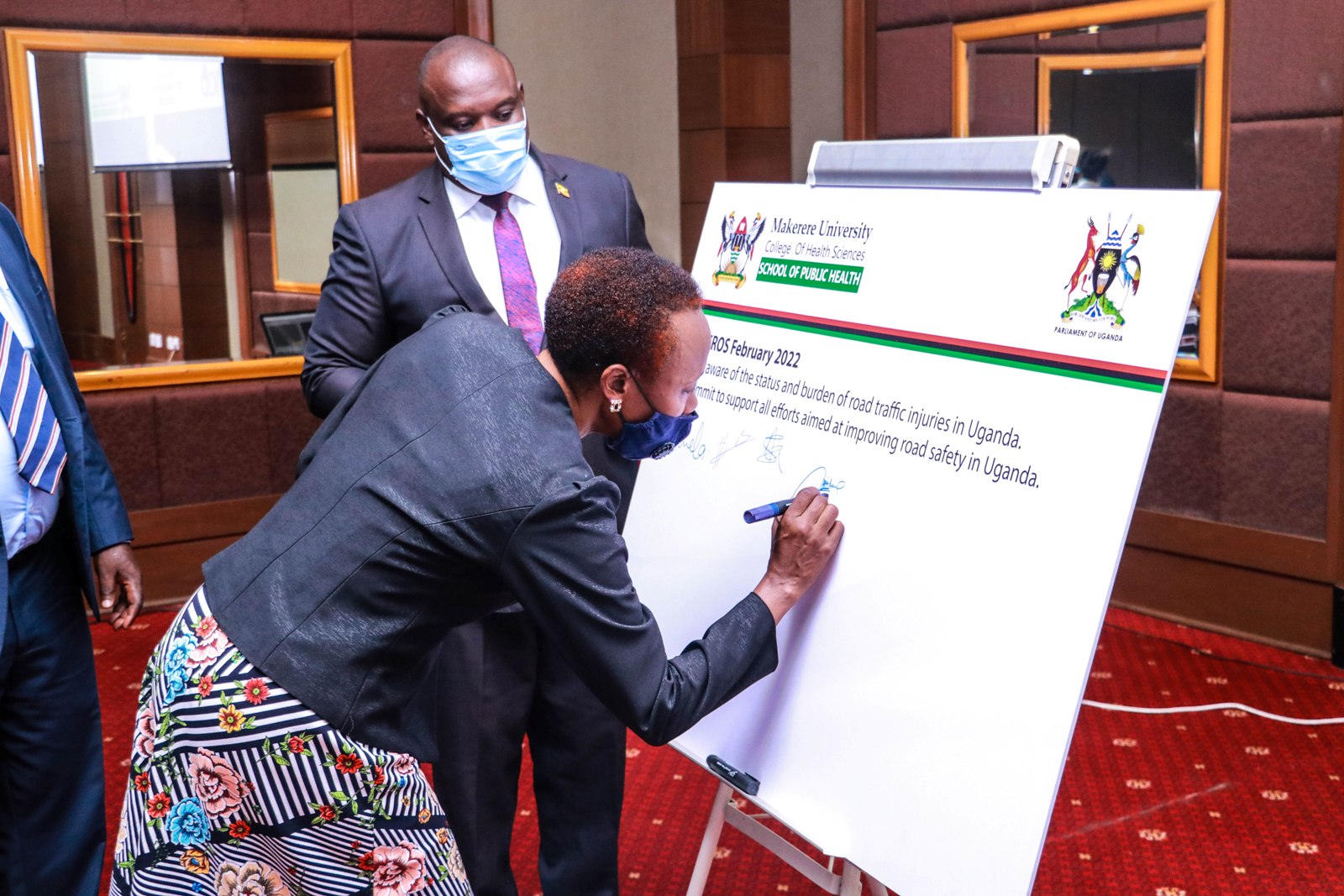
Members of Parliament under the Parliamentary Forum on Road Safety (PAFROS) have commended research efforts by the Makerere University School of Public Health’s Trauma and Disability Unit (TRIAD) for its leadership in injury and prevention research. The legislators signed a commitment to support all efforts aimed at improving road safety in Uganda.
The legislators said this while at an engagement meeting with researchers at MakSPH that took place on Thursday 17th February 2022 at Sheraton Hotel. In a well-attended session, the research team shared evidence from a number of publications that have influenced policy, and over 10-11 years, and the several achievements the School has achieved in collaboration with partners both national and international.
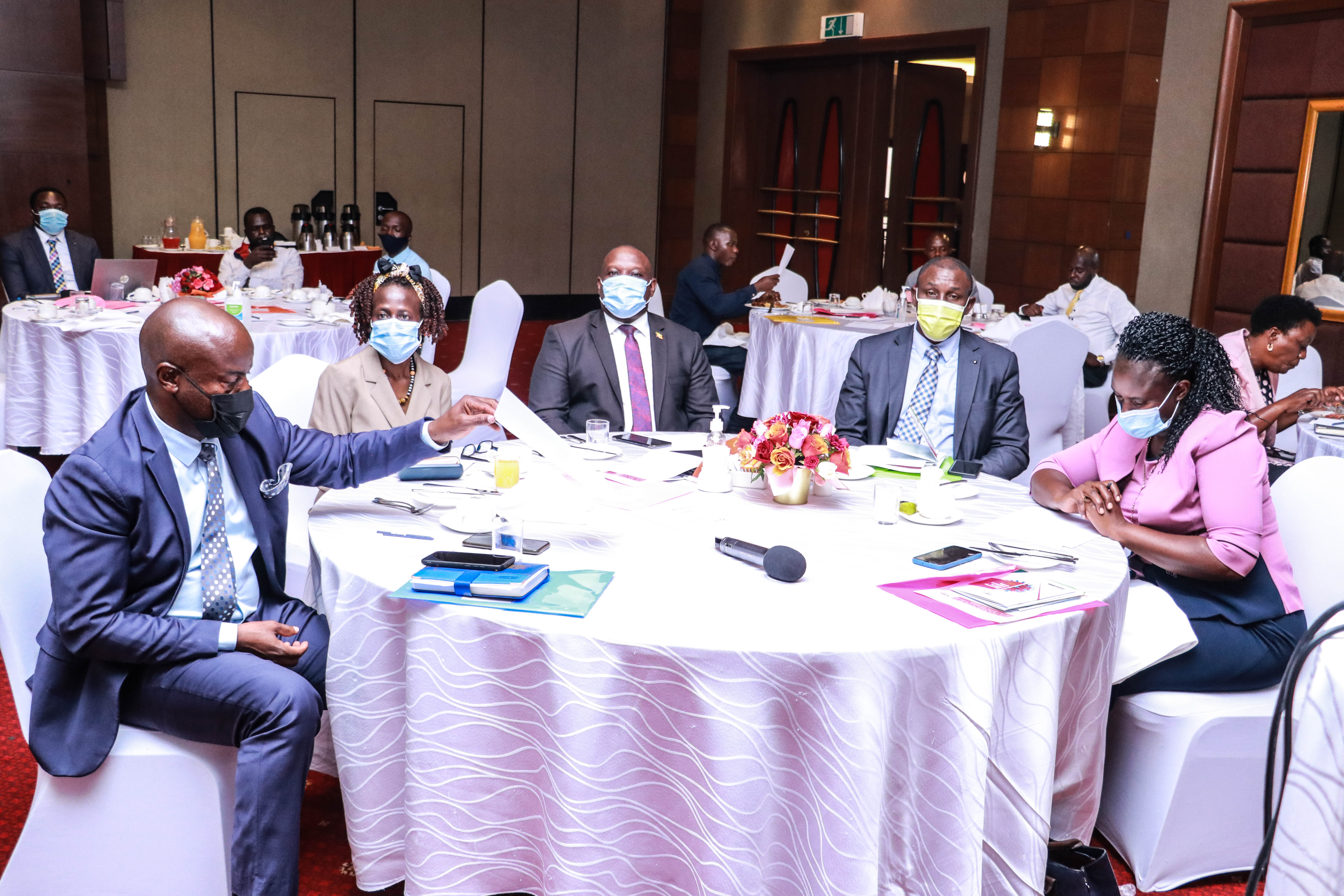
The 2014 WHO Global Health Estimates show high burden of injuries with over five million people dying of injuries every year. Mr. Frederick Oporia, a PhD fellow says nearly every six seconds, someone dies from an injury leaving over 50 million people with disabilities.
Despite this, there is insufficient research capacity to drive prevention and management of these injuries which makes multidisciplinary approach in handling multidisciplinary nature of injuries.

TRIAD’s main objective is to contribute to the reduction of injury burden in Uganda by strengthening research capacity on injuries and their medical, social and economic consequences both at Individual, community and National level.
There are various kinds of injuries that range from being intentional and non-intentional. Some of these include violence, burns, poisoning, drowning, falls and road traffic crashes. In all these injuries, road traffic contributes the highest burden 24% hence a big problem.
Currently, TRIAD focuses on mobility, Road Traffic Injury prevention, drowning prevention, childhood injury prevention and emergency Trauma Care and emergency medical services.
“When we compare HIV, tuberculosis and Malaria rates, we see that injuries alone almost double what these other Disease claim and it’s a problem we need to tackle,” says Oporia.
Goal 3 of the Sustainable Development Goals (SDGs) seeks to ensure health and well-being for all, at every stage of life. Equally so, the UN Decade of Action included road safety in the framework of Sustainable Development Goals with an ambition to halve road traffic deaths and injuries by 2020.
The 2011-2020 decade of action for road safety was premised on five pillars that included road safety management, safer roads and mobility, safer vehicles, safer road users, and post-crash response.
However, trends analysis in the Uganda Police Reports show that Uganda instead increased road traffic crashes. The SDG Goal 11 that commits UN member States to make cities and human settlements inclusive, safe, resilient and sustainable ambitiously states that by 2030, the member states should be able to provide access to safe, affordable, accessible and sustainable transport systems for all, improving road safety, notably by expanding public transport, with special attention to the needs of those in vulnerable situations, women, children, persons with disabilities and older persons.

The Road safety performance review report of 2018 show that Uganda’s road safety management is managed in the Ministry of Works and Transport under the Directorate of Road Transport. Some of the road transport legislations include, the Traffic and Road Safety Act (Amended) 2020, the Uganda National Roads Authority Act, 2006, the Uganda Road Fund Act, 2008, the National Road Safety Policy, 2014 and the Non-Motorized Transport policy, 2012.

Speaking to the legislators, Esther Bayiga Zziwa, a PhD fellow at MakSPH’s TRIAD unit says however that Uganda has legislative gaps in majority of the risk factors for instance, while Uganda has national drink-driving law in place, and drink – driving based on Blood Alcohol Content (BAC) or equivalent breath alcohol concentration (BrAC), the BAC limit for the general population is way higher than the global standard. The global standard is at below 5 gram per blood liter. However, in Uganda, the law puts it at 7 gram per blood liter which is high. Ms. Bayiga says there is a need to handle this back to the global level.
Uganda has a national motorcycle helmet law in place which applies to motorcycle drivers and adult passengers and to all road types an engine type. However, the law does not require helmets to be properly fastened as well as meet the national and or international standards.
“Helmets standards for motorcyclists put up by Uganda National Bureau of Standards (UNBS) need to make sure that those ones on market meet the standards and if you are found wearing a fake helmet, you are not better off than one not wearing any because in case of a crash, it will damage your head instead of protecting it, and people need to fasten their Helmets for better effectiveness,” says Bayiga.
Research on road safety has found that behaviour interventions area not as effective as environmental, legislative and enforcement actions. Bayiga says the Behavioural component alone cannot be effective. She recommends a multipronged approach that includes bbehavioural, environmental modification, enforcement and legislation in road safety regulation.
Uganda lacks a national child restraint law based on age, weight, height or a combination of these factors that would restrict children under a certain age-height from sitting in the front seat.
“In Uganda, even here in Kampala, those who can afford cars do not buy child safety seats for their babies and the children are carried by other adults and do not have a seat on their own. However, in case of a clash, those are the first ones that fall off the car because of their body mass and can’t survive with the normal seat,” Bayiga says.

According to Bayiga, other countries have the regulations but; “Our law does not take account any with regarding children, and probably some people think cannot afford, but this can not be compared to the lives and value of children, they too need safe seat because every life matters and a law should be put in place to address this.”
Hon. Linda Irene Mugisa, the Fort portal City Woman MP and member of the Road Safety Forum acknowledges the role of legislators to make laws and policies that would protect Ugandans.

“We have a big role of sensitizing the masses. Right now, we have very many youths who are earning income through riding boda-bodas. And the unfortunate part of this is that most of these youths have not gone through training and most of them are riding illegally because some cannot afford the driving permits. As members of parliament we feel we should advocate for the reduction in the amount of money a rider requires in order to acquire a driving permit,” says Hon. Linda.
Juliet Bashiisha Agasha, the Woman MP for Mitooma District said she was impressed by the dialogue and was excited to learn that indeed, the Trauma, Injury and Disability Unit at Makerere University School of Public Health was the only unit in Uganda that focuses on research of injury and prevention.

According to Hon. Agasha, there are many unqualified drivers on Uganda’s road who commit a lot of traffic offenses and sometimes walk away without punishment due to lack of monitoring systems. She also says most drivers lack good training and that some simply acquire driving permits without ever going to the driving schools.
“If we can have the measures that can monitor whoever makes a mistake, and then they charge accordingly, I know as Ugandans, we fear fines very much. The moment they fine you today, I don’t think tomorrow you can repeat the same mistake,” says Hon. Agasha.
She advocates for more cameras to track traffic crimes in order to improve road safety. “In fact, you find someone who is driving without a seatbelt and when he senses a traffic person, that is when he remembers that seatbelts are supposed to be used. So there is a lot of effort that we have to put in in order to reduce on road accidents especially on these motorcycles. You find a big group of motorcycles driving when there are red lights and they don’t mind whether there is red or green for them they keep moving. But if they can be controlled or sensitized about dangers of a vehicle that coming from a different direction, I believe we can reduce on the road accidents,” says Hon. Agasha.
The MP for Iki-Iki County in Budaka district, Robert Kasolo agrees that using technology in enforcement of traffic order is the way to go. He expresses concern that cameras in Uganda are largely not for road traffic law enforcement but for security reasons. “But I think that would be the ideal situation. In developed countries, cameras are part of the gadgets for enforcing traffic laws. We need to move in that direction. Policemen cannot be everywhere. But a camera can record a wider area and can be a source of evidence,” says Hon. Kasolo, who also doubles as Vice Chairperson of the Physical Infrastructure Committee of Parliament.
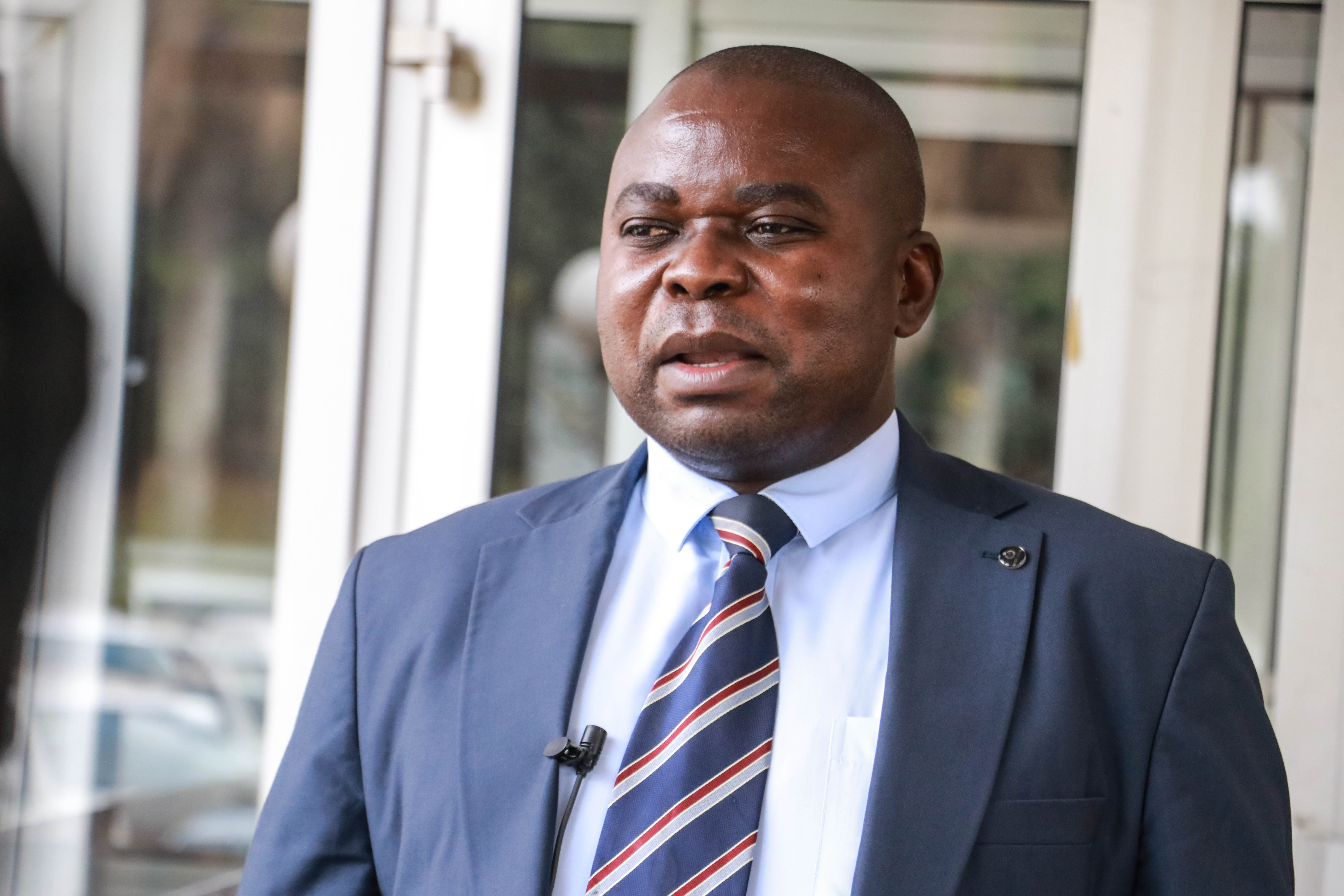
Tonny Ayo, the Member of Parliament for Kwania County, and Vice chairperson Parliamentary committee on Road Safety wants the Uganda Police Traffic department to begin to use the cameras both within the cities and high ways to bring drivers to book.
“One of our concerns of ensuring that people follow the traffic regulations and laws is that government put in place the cameras on streets and highways and we have spent money on this and the purpose was not only to deal with crime and terrorism but one of them was enforcement of traffic rules and regulations which unfortunately as a Forum as parliament and a public are wondering why government cannot come up to enforce this,” says Hon. Ayo.

He opines that; “When you drive along highways and roads within Kampala, the reckless driving of high speed, the bad overtaking, we expected that cameras could take stock of what is happening. We are calling on government to move in to ask police to begin to use these cameras to enforce the laws.”
According to Hon. Ayo, using video and pictorial evidence from the cameras, government will go a long way in collecting huge non-tax revenue through fines of traffic offenders.
“If we do this consistently for 6 months, then we are going to see discipline by the motorist in in this country and I think by the decade plan of action we were supposed to have reduced road crashes and injuries in the country by half by 2020. Now we are in 2022, and instead of reducing, the crashes and injuries have increased. That means now we need to act because we have noticed that sensitization and talking to people,” says Hon. Ayo.
Dr. Olive Chifefe Kobusingye, an accident & emergency surgeon, injury epidemiologist at MakSPH says TRIAD’s biggest concern is road safety and accessible for all road users. She ads that this can be achieved through good road designs.
“Designing for all road users not just for motorists. Making sure that there is space to accommodate pedestrians, cyclists, motorcyclists and accommodate those that are using wheel chairs for instance and to pay attention to the size of the population so that we in the design cater for heavy pedestrian presence, those spaces are adequate for them,” says Dr. Kobusingye.

In addition to the design, Dr. Kobusingye also agrees with the legislators on the need to increase enforcement of traffic regulations in Uganda to ensure road safety.
“There are areas where we need to enforce for instance where there is limited access to motorized traffic. These are all provided for in the non-motorized transport policy. So, the implementation of that policy is key to ensuring that transportation is safe, its accessible, its affordable and that its equitable that we do not prioritize certain types of road users over others,” Dr. Kobusingye observes.

You may like
-
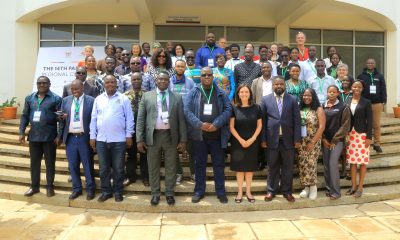

Harmonizing Africa’s Future through Musical Arts Education
-
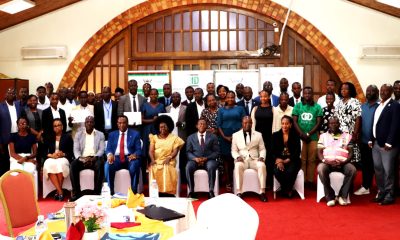

Swedish Ambassador Calls on Uganda to Lead Africa’s E-Mobility Revolution
-


Call for Abstracts: Digital Health Africa 2025
-
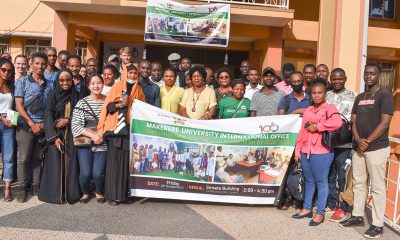

Undergraduate Admission Lists for International Applicants 2025/2026
-


Admission Lists -Disability and District Quota Schemes 2025/26
-


Makerere University Receives 700 Tablets from UBOS to Boost Statistical Activities
Health
Call for Abstracts: Digital Health Africa 2025
Published
2 days agoon
July 2, 2025By
Mak Editor
The Digital Health Africa 2025 Conference will provide practical insights in the potential applications of digital technologies, using maternal and child health, as important examples. Topics of interest will include patient registries, safety signals, vaccine use in pregnancy/breastfeeding, labelling of vaccines in pregnancy, emerging infections and antibiotic resistance, telemedicine, pharmacometric modelling, precision medicine, medicines regulation, ethical and legal aspects, and capability enhancement.
Applying an integrated multi-site face-to-face and remote format, this hybrid Conference will use digital tools to allow delegates and speakers from three different regions, South Africa, Uganda and Germany, as well as fully virtual participants to engage with one another. This will offer a nexus for collaboration and networking to promote partnerships among local and international stakeholders as well as capacity building for young scientists. Delegates will have the opportunity to engage with experts from industry, academia, healthcare providers, government and regulatory agencies as well as patient representatives to learn from one another and to gain valuable insights into the latest trends and best practices in digital health.
Abstracts should fit into one of these categories:
- Maternal and Child Health (MCH) & Digital Innovation
- Infectious Diseases & Antimicrobial Resistance (AMR)
- Digital Health Systems & Scaling
- Governance, Data Management & Interoperability
- Artificial Intelligence in Health & Research
- Pharmacometrics & Digital Tools
- Case Studies & Lessons Learned
- Cross-cutting & Strategic Perspectives
Submission deadline: 31st July 2025.
Accepted abstracts will be presented as interactive posters:
- a physical poster presentation at one of the conference sites
- an e-poster (digital version of your physical poster for sharing online)
- a 3-minute recorded presentation to accompany the poster.
Presenters with accepted posters will be offered complementary conference registration.
Submit your poster abstract here: https://forms.gle/aXYHeZSwX2EhEUas5
Health
Emorimor Calls for Makerere to Upgrade Parenting Course
Published
4 days agoon
June 30, 2025By
Zaam Ssali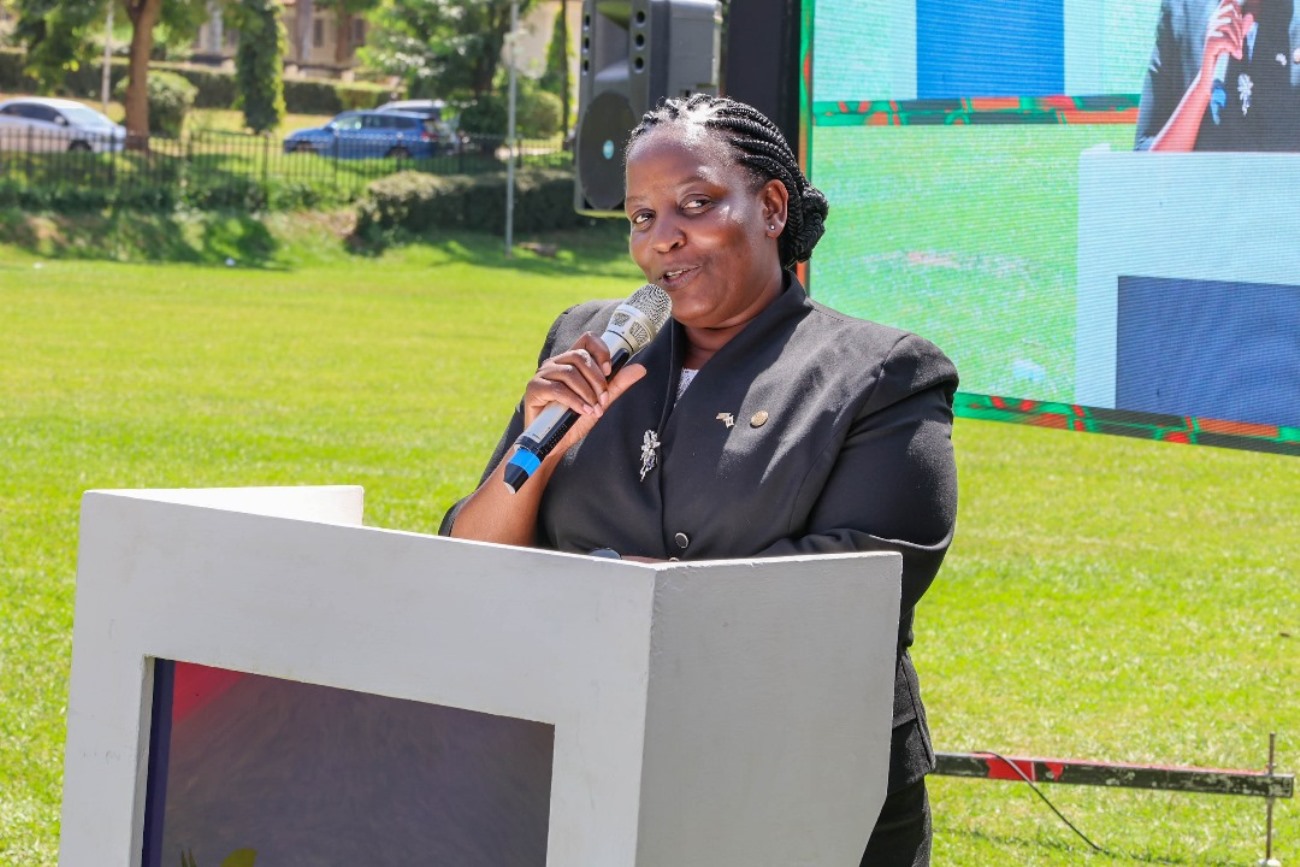
The Iteso Cultural Leader, His Highness Emorimor Papa Paul Sande Emolot, has called on Makerere University to elevate the Science of Designing, Adaptation, and Implementation of Evidence-Based Parenting Interventions course into a fully-fledged programme. This, he argued, would strengthen the capacity of practitioners implementing parenting interventions across Uganda.
Speaking at a graduation ceremony held on 11th June 2025 at Makerere University where 35 practitioners completed the 12-week course, Emorimor Papa Emolot emphasized the transformative power of effective parenting. He urged aspiring parents and advocates of the Parenting for Respectability model to enroll in the course.
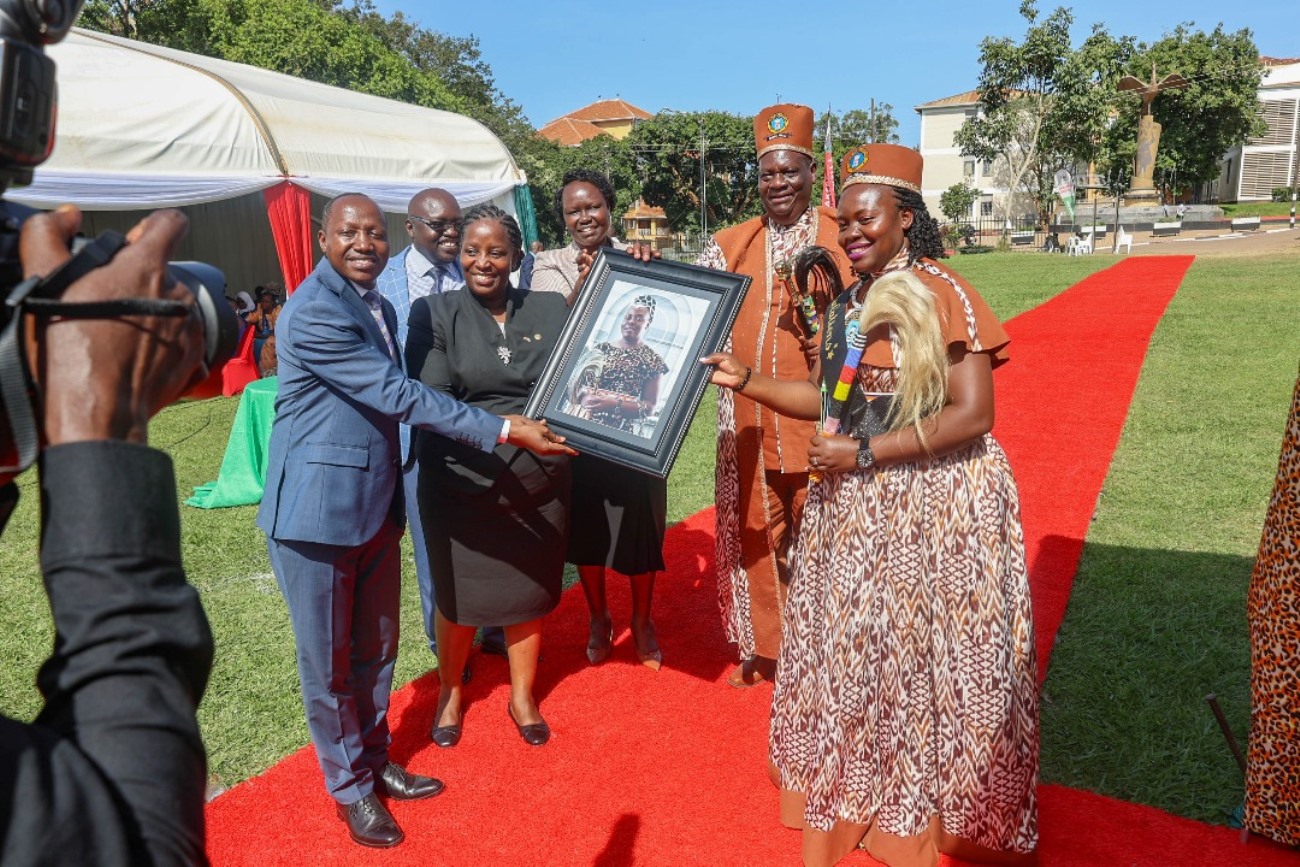
Citing the impact in his own sub-county and village, the cultural leader revealed that over 800 families had already benefited from the programme.
“We now see peace and love in homes where there was once conflict. Without good parenting, you risk raising animals instead of children,” he passionately stated.
He praised the course for equipping practitioners, policymakers, and researchers with the skills needed to design culturally sensitive, evidence-based parenting interventions tailored to Uganda’s context. Among the notable graduates was Her Royal Majesty Juliet Among Emolot Atomeileng Akaliat Toto, who reaffirmed her commitment to advancing family-strengthening initiatives using the skills and knowledge acquired.

Dr. Godfrey Siu, Senior Lecturer and Course Leader at Makerere University, described the course as a timely intervention. During this remarks, Dr. Siu described the event as a significant milestone in advancing the field of evidence based parenting intervention and family strengthening in Uganda.
“This course is meant to empower you as practitioners, policy makers and all those involved in development and implementation of parenting work. It provides both theoretical knowledge and practical tools essential for developing high quality interventions”, Dr. Siu noted. He urged the pioneer group to carry forward the expertise as champions of designing, adaptation and implementation of evidence parenting interventions.

Representing the Permanent Secretary of the Ministry of Gender, Labour and Social Development, Dr. Aggrey David Kibenge, Juliana Naumo, Commissioner for Culture and Family Affairs, said the course supports the government’s agenda to address negative social outcomes affecting families.
“By grounding parenting in research, harmonizing policy with practice, and advocating for equity, we will ensure no family is left behind,” she said. “Cross-sectoral collaboration is key to unlocking transformative change.”
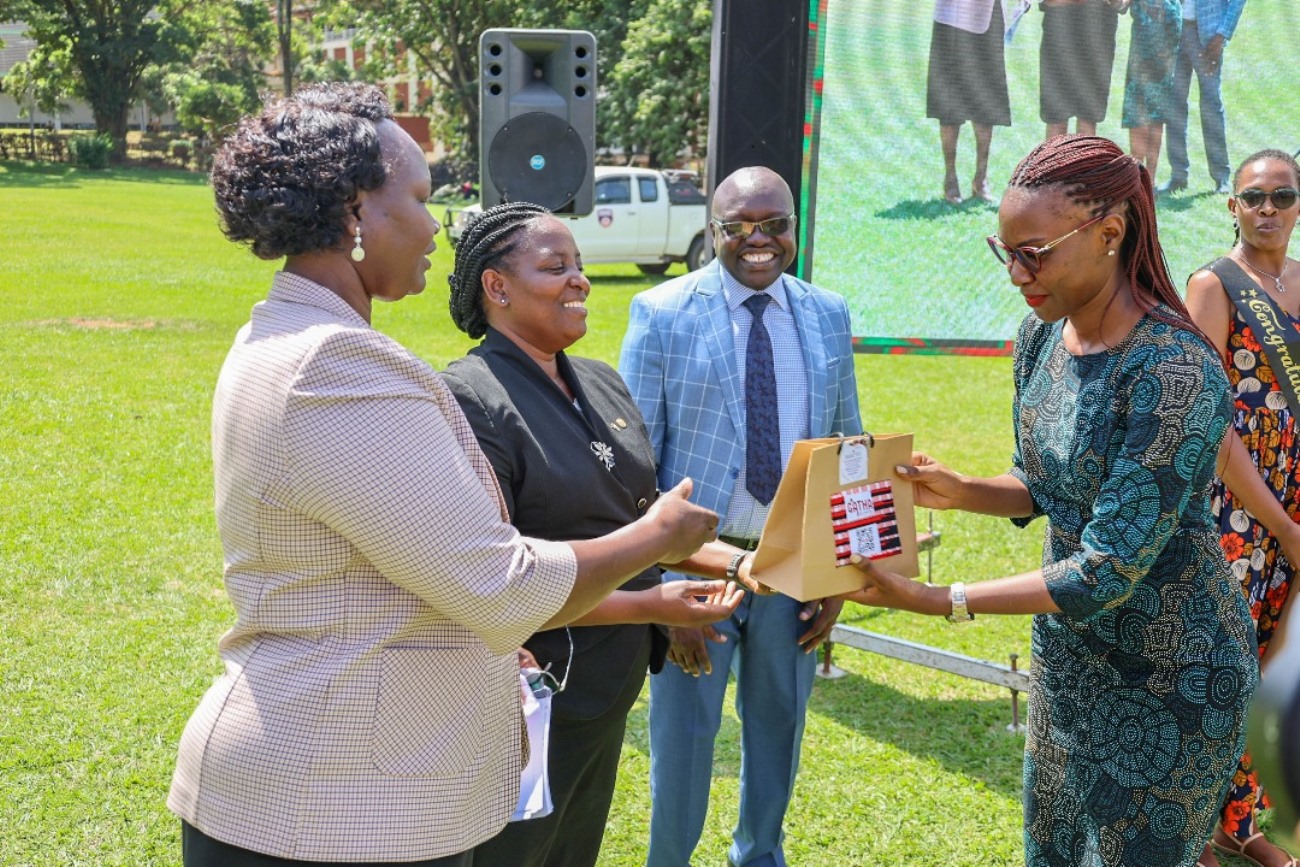
Ms. Naumo highlighted the government’s commitment—both technical and financial—to support outstanding student projects from the course. She stressed the importance of equipping professionals with the skills to bridge gaps between research and practice for consistent, high-quality parenting support across Uganda. While delivering the Vice chancellors speech by Dr. Helen Nambalirwa, Principal of the CHUSS, Prof. Barnabas Nawangwe commended the graduates as a beacon of hope.
“At a time when parenting faces challenges like digital distractions, changing societal norms, and a rising mental health crisis, Makerere reaffirms its support for interventions that drive the societal transformation we desire,” Nawangwe stated.
Prof. Richard Idro, Deputy Principal of the College of Health Sciences, acknowledged the growing parenting challenges in Uganda and the region, adding that the course was a major step towards standardizing parenting interventions nationwide.

He applauded the Child Health and Development Centre (CHDC) for leading this paramount and critical initiative.
Mr. Hosea Katende, Course Administrator at CHDC, emphasized the importance of integrating systematic methods, ethical principles, robust evidence, and collaboration to create lasting impact in parenting.
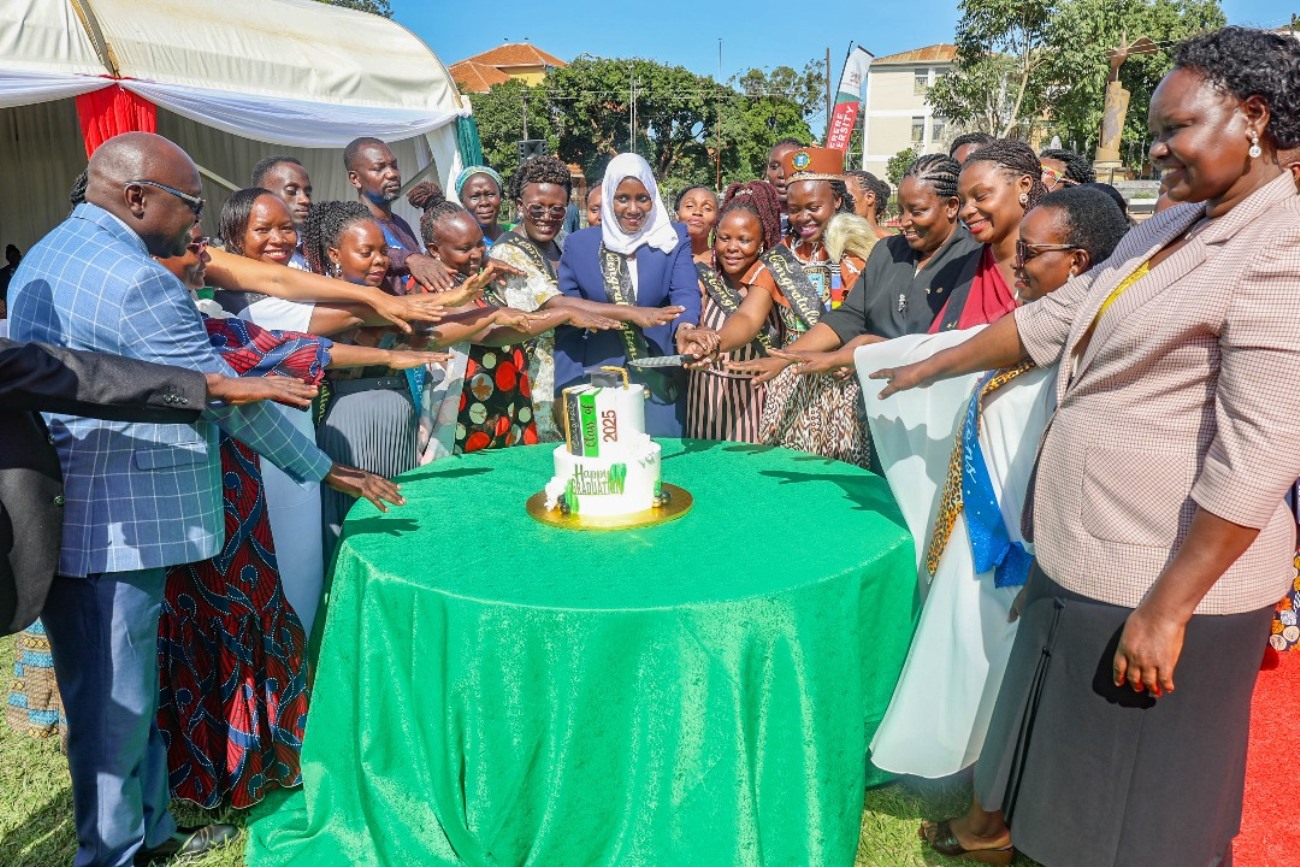
Dr. Aggrey Dhabangi, Lecturer at CHDC, representing Dr. Herbert Muyinda, Director of CHDC, acknowledged the contributions of partners such as the ELMA Foundation and Echidna Giving for their financial and capacity-building support. He also appreciated the Ministry of Gender, Labour and Social Development, among other stakeholders, for their technical guidance in the programme’s successful implementation.
Dr. Dhabangi extended gratitude to cultural institutions, especially the Kingdom of Teso, and acknowledged growing collaborations with other cultural institutions such as the Kingdom of Acholi, in the shared mission of building strong families as the foundation of Uganda’s future.

He extended his heartfelt gratitude to cultural institutions, especially the Kingdom of Teso, and others kingdoms such as the Kingdom of Acholi, in building Uganda’s future through creating strong families. Nuruh Mbalyowere, a Rehabilitation and Reintegration Officer with the Uganda Prisons Service, was honored for developing the best parenting intervention titled “Parenting Behind Prison Bars.” She expressed her intention to apply the knowledge gained both at home and in her workplace.
Health
MakSPH, DJC Launch Short Course on Health Communication
Published
2 weeks agoon
June 20, 2025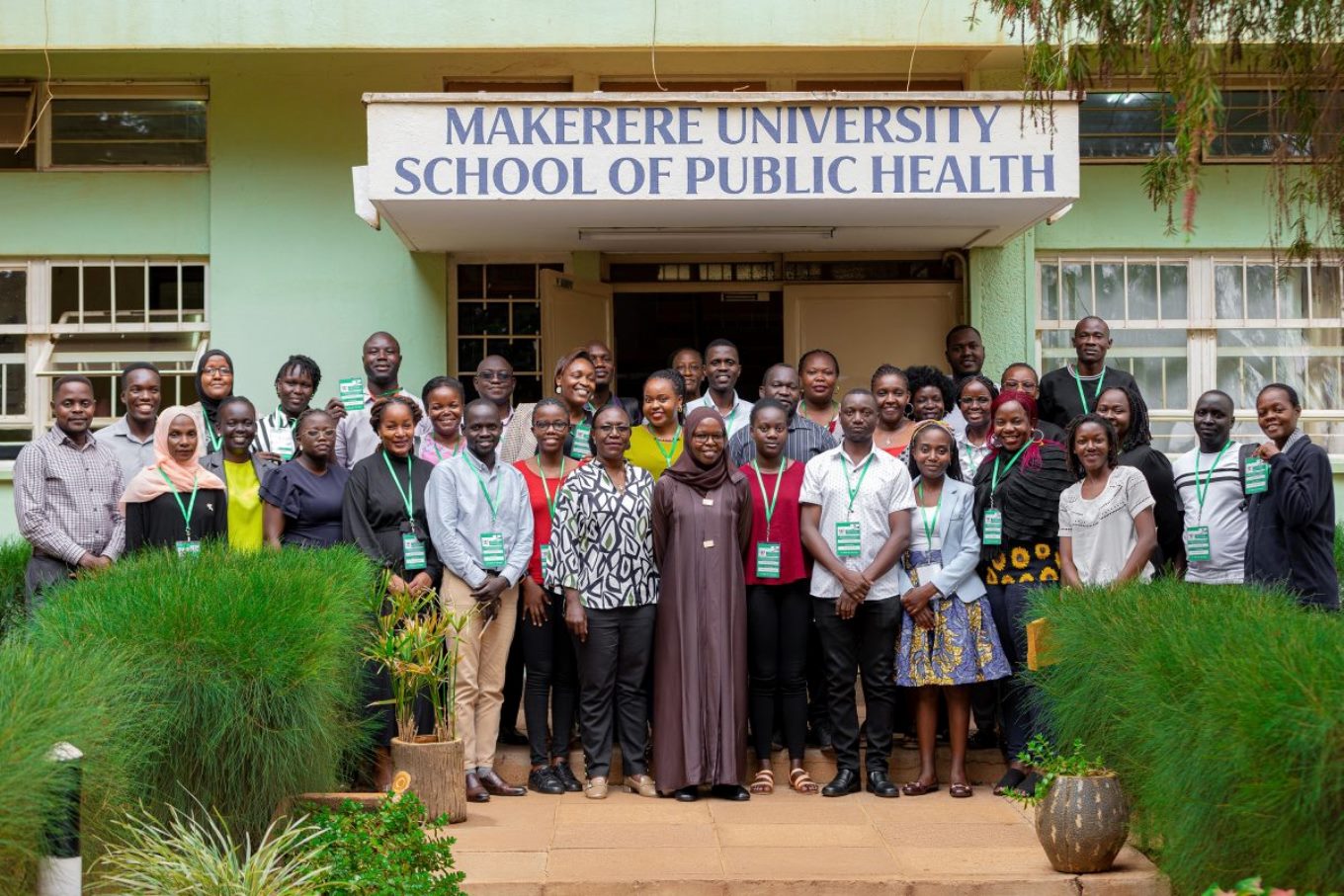
By Okeya John and Primrose Nabankema
The intensive one-month course, running for the first time from June 5 to July 24, 2025, is jointly offered by Makerere University School of Public Health (MakSPH)’s Department of Community Health and Behavioural Sciences (CHBS) and the Department of Journalism and Communication (DJC) at the School of Languages, Literature, and Communication (SLLC), co-designed in 2024 with support from the Rockefeller Foundation through Amref Health Africa.
It seeks to equip healthcare providers at the community level, public health and environmental health practitioners, communication specialists, health educators, community development officers, social scientists, and policy makers, among others, with strategic communication skills to improve public health messaging, strengthen community engagement, and support evidence-based interventions, ultimately empowering participants to effectively engage communities and improve population health outcomes across Uganda and the region.
Launching the course, the heads of the Department of Journalism and Communication and the Department of Community Health and Behavioural Sciences noted that participants who complete the short course will gain practical tools to influence behaviour change, build trust, and deliver timely, accurate, and relevant health information to the communities they serve. The first cohort attracted more than 60 applicants, with 36 reporting for the opening in-person session on June 5, 2025, at MakSPH in Mulago. Between now and July, participants will undergo a hands-on, multidisciplinary learning experience within the Certificate in Health Communication and Community Engagement program, which combines theory and practice.
Among the participants in the first cohort of the certificate course, designed as a pilot for the anticipated Master of Health Promotion and Communication to be jointly offered by the two departments at Makerere University, is Ms. Maureen Kisaakye, a medical laboratory technologist specialising in microbiology and antimicrobial resistance (AMR), and currently pursuing a Master’s in Immunology and Clinical Microbiology at Makerere. She is driven by a passion to help reverse the rising tide of AMR, a growing global health threat where drugs that once worked are no longer effective. Kisaakye is particularly concerned about common infections, like urinary tract infections, becoming increasingly resistant and harder to treat.
“I enrolled in this course because I’m an advocate against antimicrobial resistance, and it came at a time when I needed to deepen my knowledge on how to implement our projects more effectively and engage with communities. The experience has broadened my understanding of AMR and its impact on society, and strengthened my passion for community-driven health initiatives and advocacy,” Kisaakye said, explaining why she enrolled for the short course.

Kisaakye’s work in antimicrobial resistance extends beyond the lab. Having earned her degree in medical laboratory science from Mbarara University of Science and Technology, she founded Impala Tech Research in 2024 to drive impact and save lives. She has led grassroots AMR campaigns that integrate antimicrobial stewardship with water, sanitation, and hygiene (WASH) education in underserved urban communities, including the informal settlements in Kampala. She also has since designed peer-led initiatives that empower university students as AMR Champions, building a network of informed youth advocates. Kisaakye believes the health communication course will sharpen her ability to design and deliver impactful, community-centred interventions in response to the growing threat of drug resistance.
“The department collaborates with many partners within and beyond the University, including the School of Public Health, where we are working to develop the subfield of health communication and promotion. Our goal is to train specialists in this area and build a community of practice, something we have each been doing in our own spaces. There’s a lot of work ahead, and COVID-19 showed us just how urgently we need a generation trained to do this kind of work, and to do it very well,” said Dr. Aisha Nakiwala, Head of the Department of Journalism and Communication, during the opening of the short course on June 5.
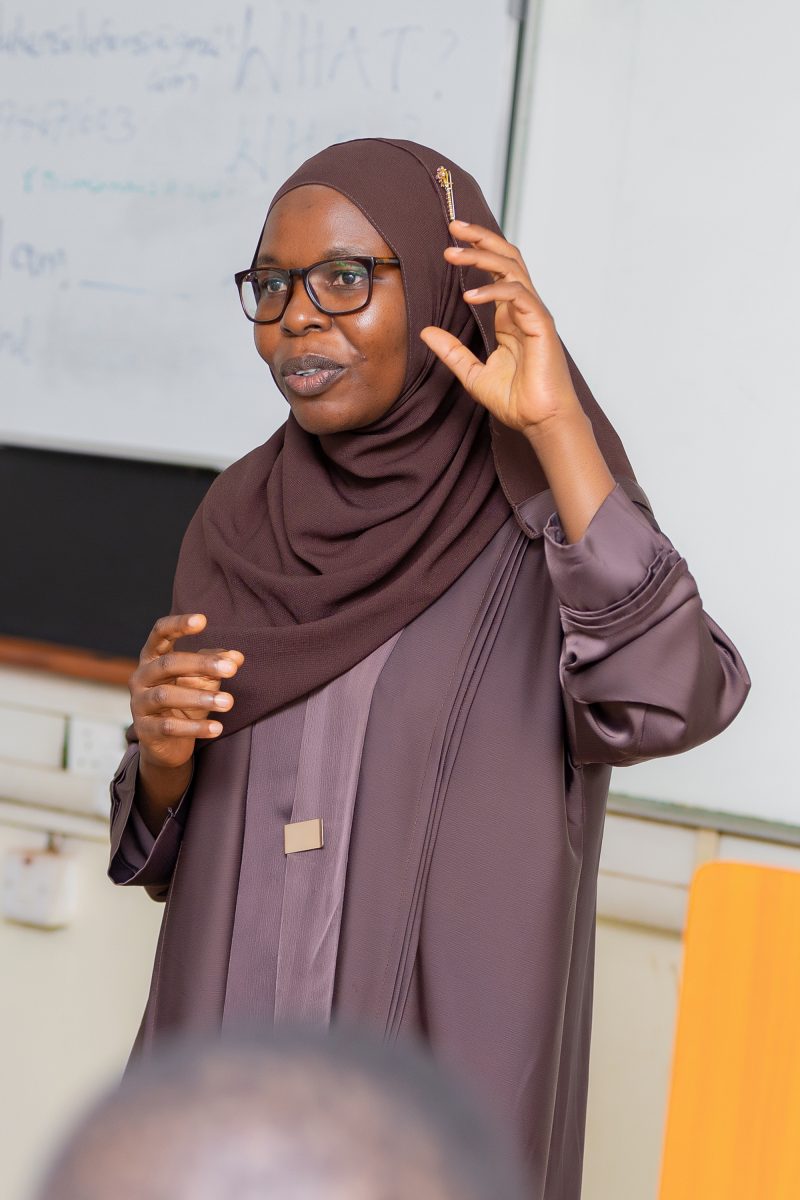
She assured participants they were in good hands and underscored the importance of the partnership between the Department of Journalism and Communication and the School of Public Health, describing it as a vital collaboration that brings together strategic communication and public health expertise. This dynamic, multidisciplinary approach, she noted, is essential to developing practical solutions that empower communities, strengthen health systems, and ultimately improve livelihoods.
The course offers a hands-on, multidisciplinary learning experience, with participants intended to explore key modules including Health Communication and Promotion, Risk Communication, Smart Advocacy, Community Mapping, Community Mobilisation and Empowerment, and Strategies for Community Engagement. The course combines theory with real-world application, and its assessment includes a field-based project and a final exam.
“You are our first cohort. We are seeing the fruits of our efforts in bringing this short course to life. It was born out of a joint initiative to develop a Master’s programme in Health Promotion and Communication,” said Dr. Christine Nalwadda, Head of the Department of Community Health and Behavioural Sciences. “We carried out extensive consultations with our different key stakeholders during the process and discovered a real need for such a course. It was the stakeholders who even named it; this course name didn’t come from us.”
For Kisaakye, by the end of the course in July, she hopes to have sharpened her skills in health promotion and strategic communication, particularly in crafting targeted messages that help individuals and communities effectively respond to threats such as antimicrobial resistance. She also aims to gain practical experience in designing, implementing, and evaluating community health initiatives that can strengthen her advocacy and drive lasting impact.
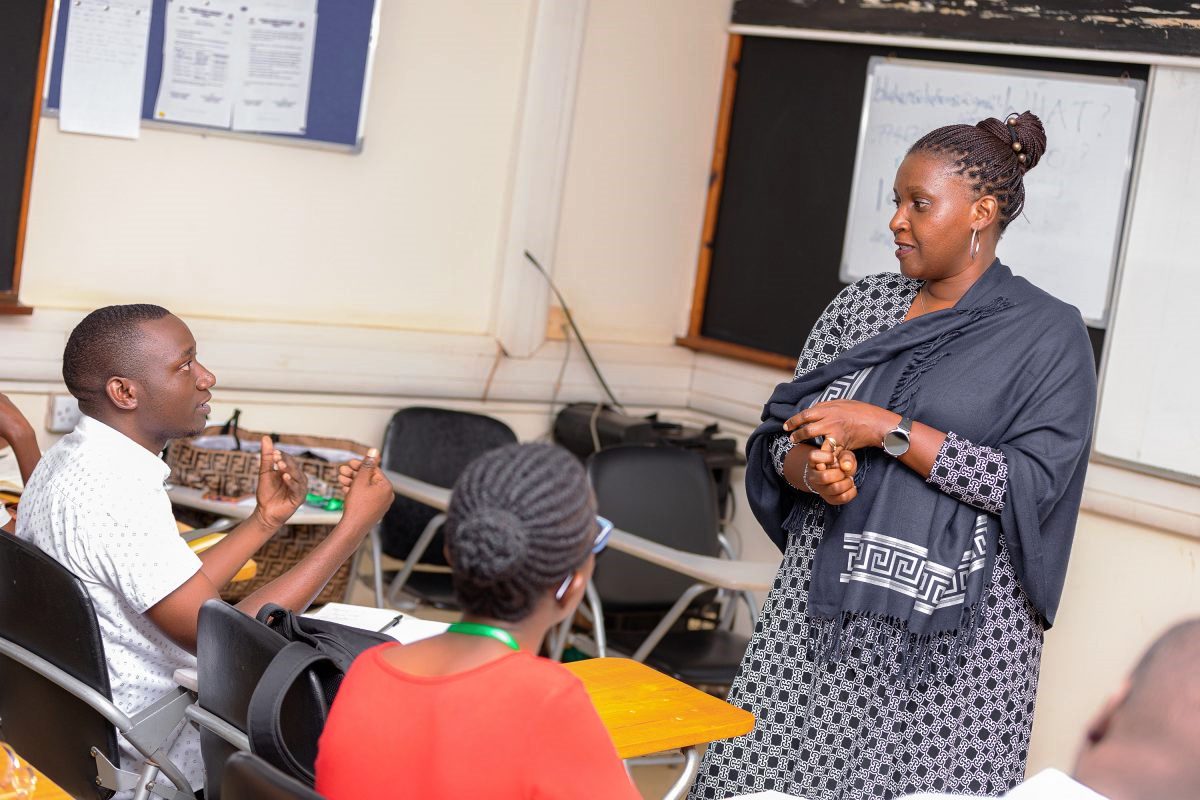
Trending
-

 General7 days ago
General7 days agoMature Age Scheme Exam Results for 2025/2026
-

 General1 week ago
General1 week agoFreshers’ Joining Instructions 2025/2026
-

 General2 days ago
General2 days agoUndergraduate Admission List Self Sponsorship Scheme 2025/2026
-

 General2 weeks ago
General2 weeks agoMastercard Foundation Board pays its inaugural visit to Makerere University
-

 General1 week ago
General1 week agoUVCF Makes Case for HEAC Programme
